Gaza / Israel: on South Africa’s third request for urgent interim measures before the International Court of Justice (ICJ) against Israel
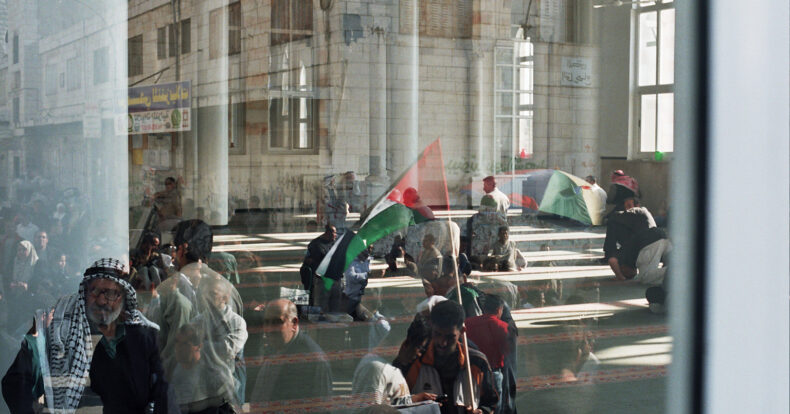
Gaza / Israel: regarding South Africa’s third request for urgent interim measures before the International Court of Justice (ICJ) against Israel.
We fear that this already catastrophic situation may slide deeper into the abyss as many Palestinians mark the holy month of Ramadan – a period that is meant to honour peace and tolerance – should Israel launch its threatened military offensive into Rafah, where 1.5 million people have been displaced in deplorable sub-human conditions. Any ground assault on Rafah would incur massive loss of life and would heighten the risk of further atrocity crimes. This must not be allowed to happen. We also fear that further Israeli restrictions on access by Palestinians to East Jerusalem and Al Aqsa Mosque during Ramadan could further inflame tensions.The UN High Commissioner for Human Rights repeats that there must be an immediate end to this conflict, and that the killing and destruction must stop.
Spokesperson, UN High Commissioner for Human Rights, Geneva, “Fears over Gaza catastrophe as brutal conflict enters sixth month”, official statement, March 8th, 2024
This March 6, 2024, the International Court of Justice (ICJ) released a third formal request for urgent provisional measures filed again by South Africa against Israel. These actions are registered in The Hague by South Africa after:
- a first request to the ICJ, filed on December 29, 2023, to which the ICJ responded by an ordinance, on January 26, 2024 (see official text of said ordinance in French and in English), and;
- a second request submitted last February 12, 2024, to which the ICJ responded on February 16 by a simple press release (see text in French and English), indicating that no new measures to those ordered to Israel on January 26 were necessary for the time being.
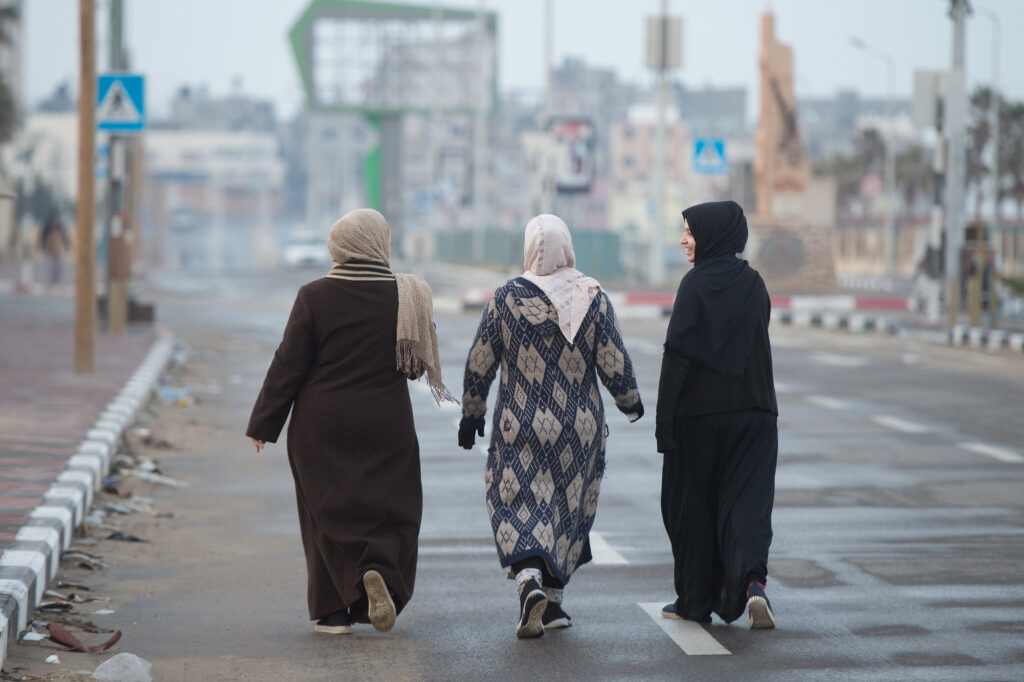
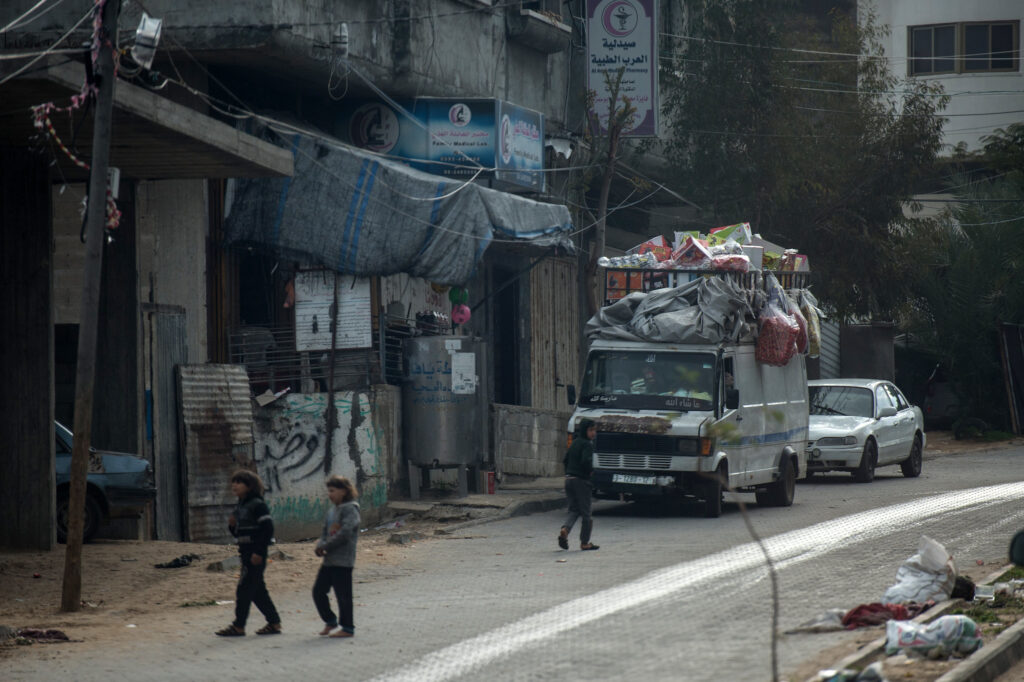
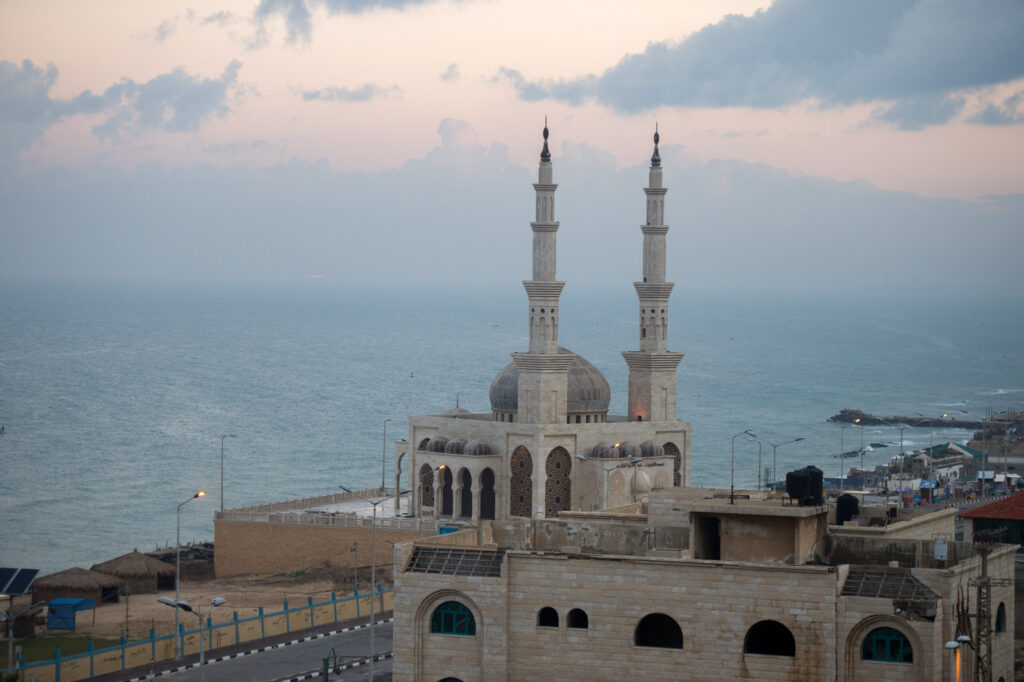
The text of this third request by South Africa (whose complete and detailed reading is recommended), can be consulted at this official ICJ link in English.
Taking into consideration the fact that South Africa’s first application was submitted a few days after the adoption, on December 22, 2023, of the S/RES/2720(2023) by the Security Council, a text that lacked significant content to curb Israel’s impetus due to the threat of a US veto (Note 1), a new reflection imposes itself: it may indeed be considered that it was the third US veto registered last February 20 in the Security Council that originated and precipitated this third urgent request to the ICJ by South Africa, in the face of the indescribable drama and suffering observed in Gaza and Israel’s defiant attitude.
A Security Council unable (again) to assume its responsibilities and powers in Gaza due to the US veto? A new action before the international judge seems to be the response of South African diplomacy to the aforementioned veto.
The United States at the beginning of 2024 or the history of an indefensible and unjustifiable support for Israel.
With regard to the US veto observed last February 20, it is interesting to note that the Vice President of the United States publicly demanded from Israel (see The Guardian article of March 3) the same thing contained in the resolution proposed by Algeria and vetoed by the US delegate in New York on February 20: an immediate cease-fire for humanitarian reasons. Indeed, the first operative paragraph of the draft resolution S/2024/173 read as follows:
1. Demands an immediate humanitarian ceasefire that must be respected by all parties;”
“1. Exige un alto el fuego humanitario inmediato que deben respetar todas las partes;
Unless we are mistaken, in the organization chart of the U.S. executive branch (as in that of the other 192 Member States of the United Nations), a delegate with the rank of U.S. ambassador to the United Nations Security Council must be considered a junior official compared to the official rank held by the U.S. Vice President.
Accordingly, this official statement empties of content the official justification given by the aforementioned diplomatic representative to try to justify her vote against her counterparts in the Security Council (see meeting minutes S/PV.9552 of February 20, 2024, pages 6).
The U.S. Role in the Israeli-Palestinian Conflict: Blind Support or Politics of Interest?
The representative of Palestine, in his statement at the same meeting of the Security Council, said:
Between our previous Council meeting on January 31 and today, the number of casualties has risen from 26,000 Palestinians killed by Israeli occupying forces to nearly 30,000 and more than 69,000 wounded. That means that, in the last 20 days alone, Israel has killed nearly 4,000 more Palestinian children, women and men. That’s in just 20 days. That is the unfortunate consequence of inaction. It means that every day more than 200 Palestinians are killed. It means that by the time this Security Council meeting ends, more than 25 Palestinians will have been killed.
(pages 14-15).
On March 6, the pressure on the U.S. executive branch increased when the Washington Post published a report entitled “U.S. floods arms into Israel despite mounting alarm over war’s conduct” (the full report is recommended reading) in which the total opacity of U.S. arms transfers to Israel since October 7 is revealed.
Neither Israel nor the United States are States Parties to the Arms Trade Convention adopted in 2013, whose number of States Parties stands at 113 (see official status of signatures and ratifications). Within the UN Security Council, of the five Permanent Members, only the United States and Russia persist in not submitting to the obligations contained in this multilateral treaty.
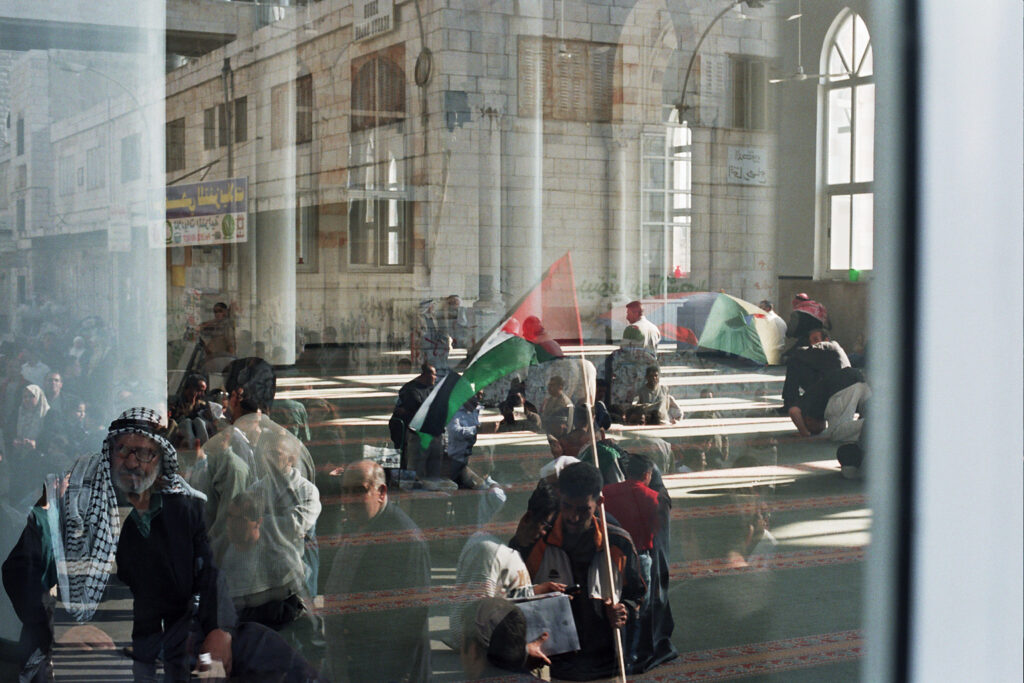
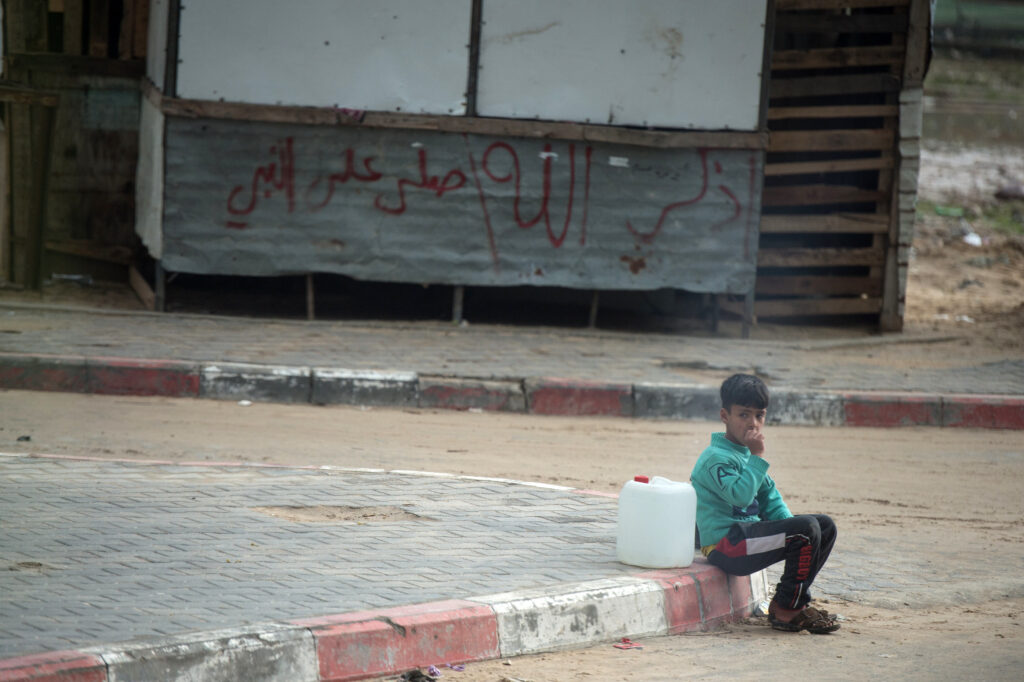
The third South African application coming soon.
Under the text of this third request to the Hague judge asking him to order provisional measures, it is stated that the military actions deployed by Israel must be stopped at all costs in view of the inhuman drama they provoke, and in view of the various warnings of an imminent famine that several experts and agencies have expressed from the United Nations.
Under the text of this third request to the Hague judge asking him to order provisional measures, it is stated that the military actions deployed by Israel must be stopped at all costs in view of the inhuman drama they provoke, and in view of the various warnings of an imminent famine that several experts and agencies have expressed from the United Nations.
At the beginning of its third request, it can be read that for South Africa, the response to its second request by the international judge also merits a review:
4. On 16 February 2024, the Court determined that the circumstances then prevailing did “not demand the indication of additional provisional measures” pursuant to Article 75(1) of the Rules of Court, on the basis that “the State of Israel remains bound to fully comply with its obligations under the Genocide Convention and with said Order”. However, the Court clarified that the obligations binding on Israel pursuant to the Order included the imperative to ensure “the safety and security of the Palestinians in the Gaza Strip”. The Court further determined that “the most recent developments in the Gaza Strip, and in Rafah in particular, ‘would exponentially increase what is already a humanitarian nightmare with untold regional consequences’, as stated by the United Nations Secretary-General” and that the “perilous situation demands immediate and effective implementation of the provisional measures indicated by the Court in its Order of 26 January 2024.
5. The situation then “perilous” is now so terrifying as to be unspeakable, as described by United Nations humanitarian chiefs, justifying — and indeed demanding — the indication of further provisional measures of protection pursuant to Article 75 of the Rules and modifications of the Court’s prior provisional measures decisions pursuant to Article 76“.
At the beginning of its third request, it can be read that for South Africa, the response to its second request by the international judge also merits a reconsideration:
27. The new facts and/or change in situation in Gaza demand additional and/or modified provisional measures. The demand could not be starker, having regard to the magnitude and gravity of the situation facing the Palestinian people in Gaza. Israel has knowingly and deliberately continued to act in defiance of the Order. In addition to causing the death by starvation of Palestinian children in babies, Israel has also continued to kill approximately 4,548 Palestinian men, women and children since 26 January 2024, and to wound a further 7,556, bringing the grim totals to 30,631 killed and 72,043 injured. An unknown number of bodies remain buried under the rubble. 1.7 million Palestinians remain displaced — many of them permanently, Israel having damaged or destroyed approximately 60 per cent of the housing stock in Gaza. Approximately 1.4 million people are squeezed into Rafah — which Israel has stated it intends to attack imminently. Israel’s destruction of the Palestinian healthcare system has also continued apace, with ongoing, repeated attacks on hospitals, healthcare, ambulances and medics. Israel has also continued to conduct widespread attacks on schools, mosques, businesses and entire villages and areas. In sum, Israel has not changed its conduct materially or at all pursuant to the Order – it has instead doubled-down on its genocidal aims and acts.
28. Israel has thus shown contempt for the Court and its Order in what it has done. It has also done so in what it has said: alongside seeking to argue that the Court has not in fact imposed any requirements on Israel’s military operations additional to those by which Israel claimed to already be abiding, senior Israeli officials have poured scorn on the Court and its Order. They have called the Court’s failure to reject South Africa’s claim “a mark of disgrace that will not be erased for generations” (Israeli Prime Minister) and a “blood libel that undermines the very values on which this court was established” (Israeli President); and have asserted that “decisions that endanger the continued existence of the state of Israel should not be obeyed, and we must continue crushing the enemy until absolute victory” (Minister for National Security).
29. Having regard to the clear and deliberate acts, omissions and statements by Israel, South Africa submits that it is necessary to do more than to reiterate that “the State of Israel remains bound to fully comply with its obligations under the Genocide Convention and with the… Order”.

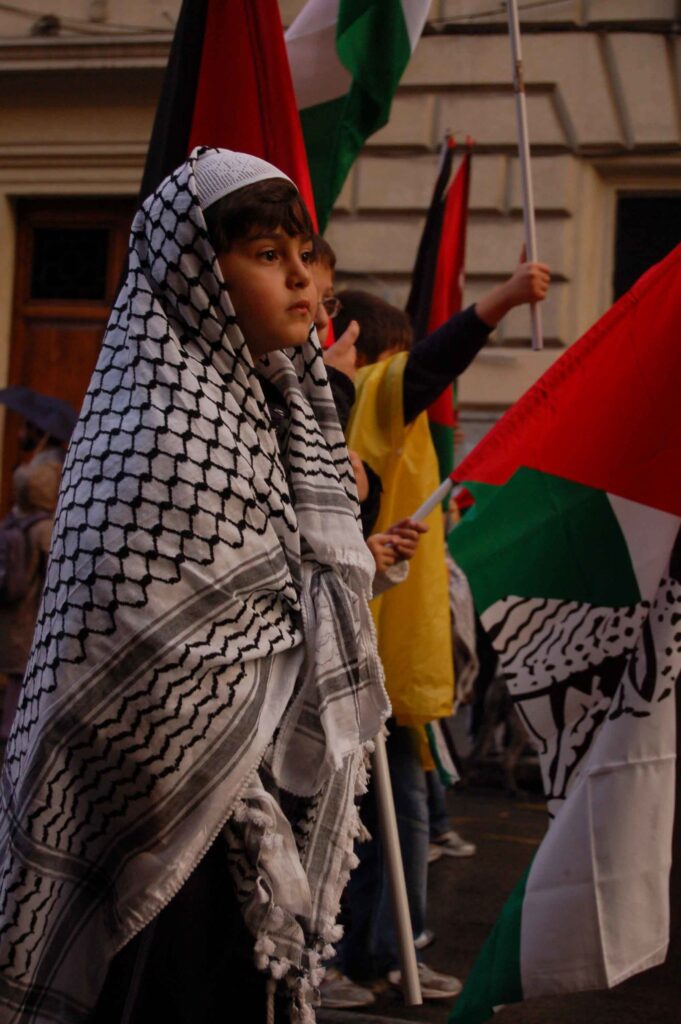
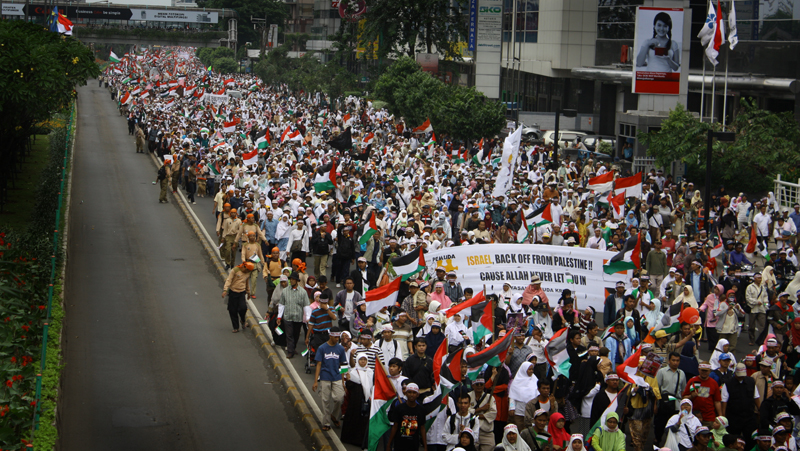
As it may be observed, South Africa’s legal advisors are trying to make it appear that the situation warrants much more significant measures by international justice in the face of a State that persists in defying international justice, ignoring what has been ordered since January 26 by the ICJ.
The ICJ judges will deliberate on this third request from South Africa and, as was the case with the second request, a response is expected in the coming days, given the absolute urgency of halting Israel’s senseless actions in Gaza.
An ICJ ordinance awaiting compliance since January 26.
The latest available United Nations situation statement (as of March 6, 2024, see report) reads that Israel’s relentless deadly actions continue with unjustifiable death and injury rates:
Intense Israeli bombardment and ground operations as well as heavy fighting between Israeli forces and Palestinian armed groups continue to be reported across much of the Gaza Strip, resulting in further civilian casualties, displacement, and destruction of houses and other civilian infrastructure. Between the afternoon of 5 March and 10:30 on 6 March, according to the MoH in Gaza, 86 Palestinians were killed, and 113 Palestinians were injured. Between 7 October 2023 and 10:30 on 6 March 2024, at least 30,717 Palestinians were killed in Gaza and 72,156 Palestinians were injured, according to MoH in Gaza.
According to a press release by UN Women on 1 March, an estimated 9,000 women have been reportedly killed by Israeli forces in Gaza to date, not including those believed to be dead under the rubble. “Every day the war in Gaza continues, at the current rate, an average of 63 women will continue to be killed. An estimated 37 mothers are killed every day, leaving their families devastated and their children with diminished protection. Between the afternoons of 5 and 6 March, according to the Israeli military, there were no Israeli soldiers killed in Gaza. As of 6 March, 244 soldiers have been killed and 1,451 soldiers injured in Gaza since the beginning of the ground operation, according to the Israeli military. In addition, over 1,200 Israelis and foreign nationals have been killed in Israel, the vast majority on 7 October.
As of 6 March, the Israeli authorities estimate that 134 Israelis and foreign nationals remain captive in Gaza, including fatalities whose bodies are withheld. On 5 March, a 13-year-old girl who was trapped for 40 hours under the rubble of her destroyed house in Hamad city, west Khan Younis, was rescued and transferred to a field hospital in Rafah. Her entire family was killed.
The Palestine Red Crescent Society (PRCS) and OCHA participated in her evacuation. On 4 March, the bodies of 41 Palestinians reportedly killed in various areas in Khan Younis were recovered from under rubble. On 4 March, a nurse who worked at a primary health clinic supported by Project Hope was killed, along with seven of his relatives, including a child and a pregnant woman, in a strike on their family home in Rafah. In a statement, Project Hope said: “We are outraged and heartbroken by the loss of Mohammed and the countless other innocent humanitarians, health workers, and civilians who have died during this conflict,” warning that their remaining team members in Gaza “are in imminent danger.” Since the onset of hostilities, 364 health workers have been killed, according to the MoH in Gaza.
Ordinance Ignored: Israel and the Permanence of the Crisis in Gaza
As has been verified on the ground by several UN agencies, Israel has not changed its actions in Gaza since the ICJ order dated January 26, 2024: it maintains a campaign of incessant, disproportionate and indiscriminate bombardment of Gaza similar to those launched since October 7 in the afternoon/evening, in open violation of the most basic rules of international humanitarian law.
As a matter of fact, from a strictly strategic and military point of view, on March 7, five months of intense bombardment, Israel has not been able to achieve the initial military objectives it set out to achieve, as it has not been able to achieve the initial military objectives it set out to achieve, as it has not been able to achieve the initial military objectives it set out to achieve, as it has been able to achieve the initial military objectives it set out to achieve:
- keep the hostages hidden in Gaza with their custodians;
- following the Hamas military leaders in life instructing their fighters, and;
- maintaining much of the Hamas military structure operational, firing rockets into Israel with some regularity from Gaza.
The failure of this Israeli operation in Gaza is latent from the military point of view, and it is possible that as soon as it is over, its top officials in Israel will face accusations of various kinds. Hence the idea of many analysts in Israel (and outside) that this Israeli military operation will be extended in time by the current war cabinet, as it is their only way to survive politically inside Israel. Or that, in the face of international pressure, once this confrontation in Gaza is over, some pretext in Israel will justify a second confrontation, either with Lebanon, Syria or Iran: in other words, as long as Israel is in a state of war, its current authorities have a chance to survive politically.
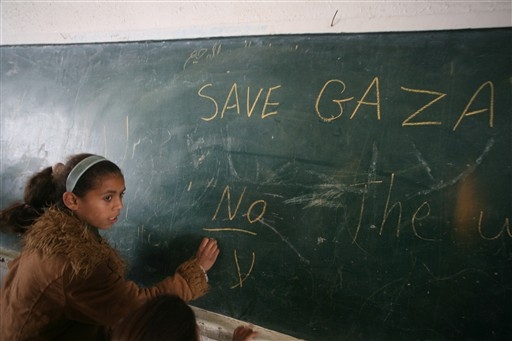
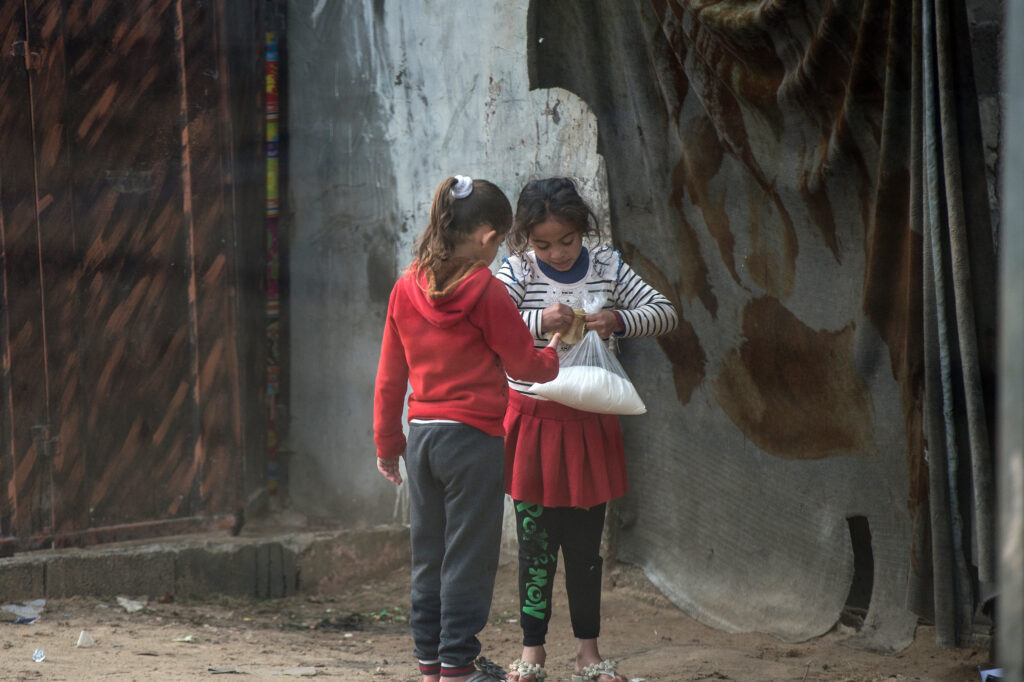
Above balance of deaths and injuries and a recent overlooked confirmation.
As for the death and injury toll due to the intensity of Israel’s offensive in Gaza, a former military officer in France and noted expert on aerial bombardment, indicated in a blog post entitled “Laissons Netanyahou dévaster la bande de Gaza et Poutine écraser l’Ukraine ?” (see full postwith a very detailed set of maps) that:
“Pour achever la dévastation de la bande Gaza, dont les ¾ ont été effectués en 4 mois de guerre, il ne manque plus à Netanyahou que quelques semaines pour y parvenir, un ou deux mois peut-être. Le bilan sera catastrophique en pertes humaines, l’actuel étant largement sous-estimé puisqu’il n’intègre pas les 8 à 9,000 « disparus » déjà recensés par ce qui reste de l’état-civil de Gaza, auquel il faut rajouter les personnes ensevelies sous les décombres et que personne ne recherche.
Compte tenu de l’intensité et de la durée des bombardements effectués par l’armée israélienne, une fois « l’offensive massive » sur Rafah achevée, les victimes palestiniennes dépasseront les 50,000 morts. Je parle volontairement de « victimes » car pour 80%, ce seront des civils sans rapport avec les miliciens du Hamas. Il faudra encore multiplier par 3 à 4 le nombre de blessés, soit un total supérieur à 200,000 morts et blessés à la fin de cette offensive israélienne”.
Silence in Gaza: Deaths and Injuries Ignored by the International Community
Still on the death toll among the Palestinian civilian population in Gaza, the fact that it is the same US Secretary of Defense himself who has publicly stated that 25,000 children and women have died in Gaza, during an appearance on February 29 (see note from the Times of Israel of the same date) comes to put in check those who, in the United States and Israel (but also from some influential newsrooms in some parts of the world), persist in questioning the dramatic toll in human lives observed in Gaza since the afternoon / evening of October 7, 2023.
Unless these same people now consider that the US Secretary of Defense is a person misinformed by his intelligence services and advisors, and that it is the official information coming from the Israeli army that must be considered as correct …
Another piece of information that is officially circulating from Israel and has been recorded in a large number of press releases and analysts is the following: the official figure from the Israeli military authorities according to which 10,000 Hamas fighters have been eliminated. Despite its rapid dissemination and acceptance in several major media outlets as valid, many doubts persist about this high figure, as this interesting article from BBC Verify, precisely titled “BBC Analysis: has Israel really killed 10,000 Hamas fighters?“, details.
Gaza / Israel: Actions before international justice by other States.
With regard to other States, which support the actions of South African diplomacy against Israel, we had the opportunity in a previous note to explain the scope of the request for intervention submitted by Nicaragua last January 22, which was made known by the ICJ on February 8, 2024: see our previous note entitled “Gaza / Israel: apropos of the recent request for intervention by Nicaragua before the International Court of Justice (ICJ) in the lawsuit of South Africa against Israel“.
Notice that Nicaragua has filed a new claim before the ICJ, this time against Germany, accompanied by an urgent request for provisional measures of an urgent nature. This initiative was formally registered last March 1st (see official text of its request), Nicaragua pointing out in its brief that Germany is ignoring with its actions and official statements in favor of Israel, the obligations that every State Party to the 1948 Genocide Convention must respect, including the obligation to prevent a new genocide (particularly if it is a State exporting arms to Israel).
…
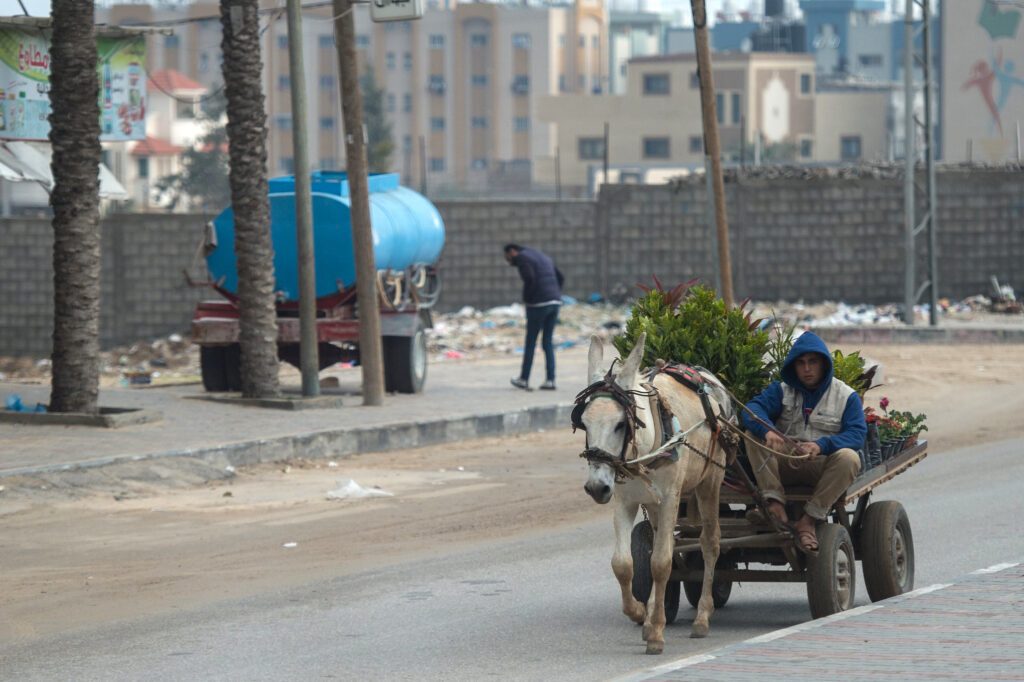
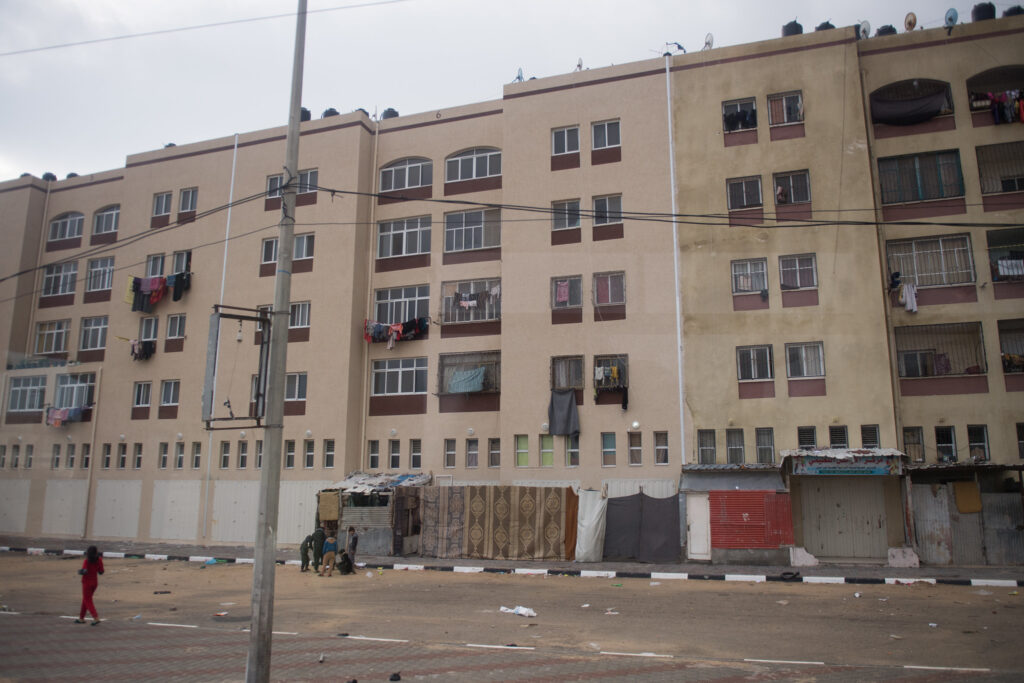
One month before, on February 1, 2024, an official communiqué from Nicaragua warned Germany, Canada, Netherlands and United Kingdom of an action in that sense (see in this regard the text of that communiqué reproduced in this link of the media El19Digital of Nicaragua). A detailed description of the contents of Nicaragua’s initial letter to Germany can be found in this document annex to Nicaragua’s complaint (pages 2-9).
For the time being, at least, it seems that Nicaragua has decided to focus its actions before the judge in The Hague on Germany. The exact reasons for this choice instead of other states supplying arms to Israel are not explained in its brief.
We note that in a recent note EuroNews press release dated March 11, it is stated that:
The US and Germany accounted respectively for 69% and 30% of arms imports by Israel, which is currently fighting a deadly war against Hamas in Gaza which killed over 30,000 people, most of whom were civilians.
The arms trade constitutes a specific area of public international law, with ramifications in domestic law when there are risks of misuse, and with a legal regime that entails domestic responsibilities for arms exporting States, as was well analyzed in a paper published in 2021 that concludes (page 53):
Legal challenges are gradually becoming a pragmatic response in the face of apparently unlawful decisions by arms exporting states. Governments should recognise this shift and the possibility that their decisions on arms exports will increasingly be subject to legal challenges before domestic courts. Their decisions must be able to withstand judicial oversight and must conform with obligations under both international and domestic law
(Note 2).
According to its request to the ICJ sent to the ICJ (see text), it reads in paragraph 53 that:
By the end of 2023, the German Government had granted military exports to Israel in the amount of 326,505,156 euros. On January 2024, German media reported that Israel had made a request for tank shells, especifically 10,000 120-millimeter Rheinmetall precision rounds. Der Spiegel reported that Germany had agreed to deliver the request from its own stocks in order to be able to comply with the “urgency”. According to information made available by the German Government, export licences granted between January 2024 and 15 February 2024 concerned military equipment worth 9,003,676 euros.
As a result, in the final part of its petition in which it asks the ICJ to order urgent provisional measures against Germany, Nicaragua requests several points from the ICJ judges, namely (paragraph 101):
“…, Nicaragua respectfully requests the Court, as a matter of extreme urgency, pending the Court’s determination of this case on the merits, to indicate the following provisional measures with respect to Germany in its participation in the ongoing plausible genocide and serious breaches of international humanitarian law and other peremptory norms of general international law occurring in the Gaza Strip:
(1) Germany shall immediately suspend its aid to Israel, in particular its military assistance including military equipment, in sor far as this aid may be used in the violation of the Genocide Convention, international humanitarian law or other peremptory norms of general international law such as the Palestinian People’s right to self-determination and to not be subject to a regime of apartheid;
(2) Germany must immediately make every effort to ensure that weapons already delivered to Israel are not used to commit genocide, contribute to acts of genocide or are used in such a way as to violate international humanitarian law;
(3) Germany must immediately do everything possible to comply with its obligations under humanitarian law;
(4) Germany must reverse its decision to suspend the funding of UNRWA as part of the compliance of its obligations to prevent genocide and acts of genocide and the violation of the humanitarian rights of the Palestinian People which also includes the obligation to do everything possible to ensure that humanitarian aid reaches the Palestinian people, more particularly in Gaza;
(5) Germany must cooperate to bring to an end the serious breaches of peremptory norms of international law by ceasing its support, including its supply of military equipement to Israel that may be used to commit serious crimes of international law and that it continue the support of the UNRWA on which this Organizations has counted and based its activities“.
Since Germany is not Israel’s only supplier of arms or electronic components for military purposes, Nicaragua’s petition should be of interest to many other States Parties to the 1948 Convention against Genocide; and, incidentally, it should also raise the question (in Germany) of groups of social organizations which, unless we are mistaken, have not activated the legal mechanisms provided for when German arms are exported to destinations where their misuse against defenseless civilian populations is evident (Note 3).
From the legal point of view, it should be noted that Germany is a State Party to the 2013 Arms Trade Convention (see full text), Article 6(3) of which reads as follows:
“3. Each State discloses that it shall not authorize any transfer of conventional arms covered by article 2, paragraph 1, or of items covered by article 3 or article 4, if, at the time of authorization, it has knowledge that the arms or items could be used to commit genocide, crimes against humanity, grave breaches of the Geneva Conventions of 1949, attacks directed against civilian objects or protected civilians, or other war crimes as defined in international agreements to which it is a party” (emphasis added).
The South African lawsuit that led to the ICJ order of January 26: a strong call to action.
The text of the first South African lawsuit as such filed on December 29, 2023, the full text of which is recommended reading (and in particular the detail of the chilling official statements of Israel’s highest authorities in paragraphs 101-107), is available in full in French and in English.
In the first reflections of Professor Yussef Al Tamimi, the author specified in his conclusions the unpostponable task that awaited the States in the face of the challenge posed by Israel to the international community, as it does not seem willing to comply with the ICJ order since January 26, 2024:
Since the ICJ handed down its provisional measures Order on 26 January, Israeli forces have reportedly killed hundreds of Palestinians as per UNOCHA’s daily briefings, civilians waiting to receive humanitarian aid were shot and injured, hospital staff have been killed, and government ministers called for the displacement of Palestinians from Gaza at a far-right conference. These events underscore the real and imminent risk of irreparable damage facing rights plausibly protected under the Genocide Convention. At a time when the credibility of international law hangs in the balance, the ICJ demonstrated the enduring relevance of its guidance by issuing a firm ruling in front of an expectant legal and non-legal community. States are now called upon to ensure, beyond assurances and words, that they are ready to take action to ensure compliance
(Note 4)
A “plausible risk of genocide in Gaza, confirmed by the ICJ since January 26, 2024, and a State that, since then, continues to defy international justice with its senseless actions in Gaza, challenge all members of the international community, both nationally and internationally.
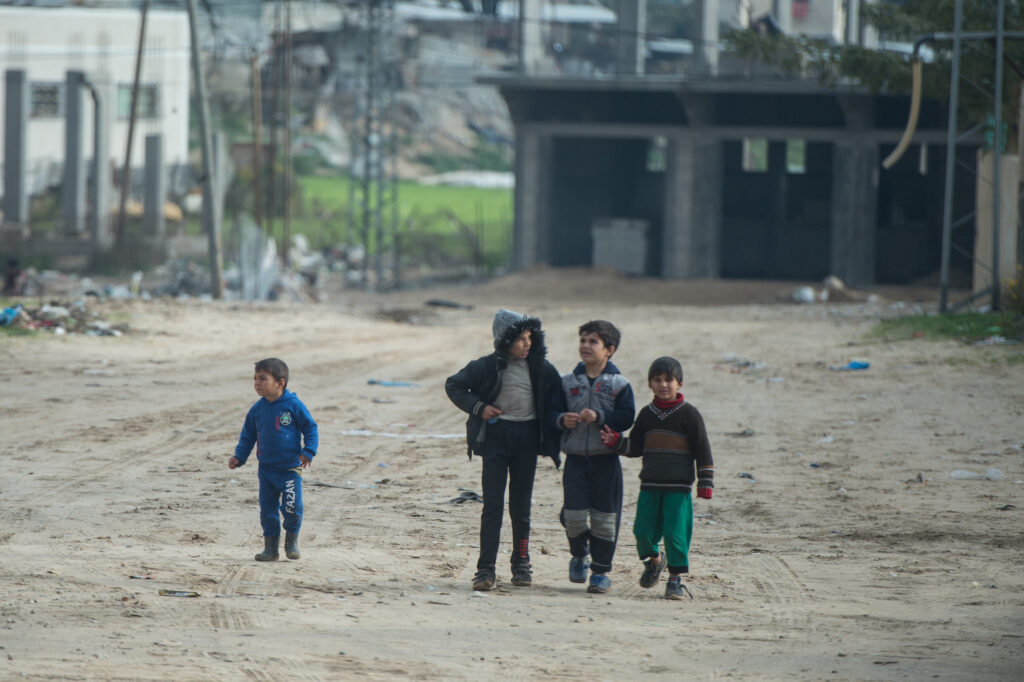
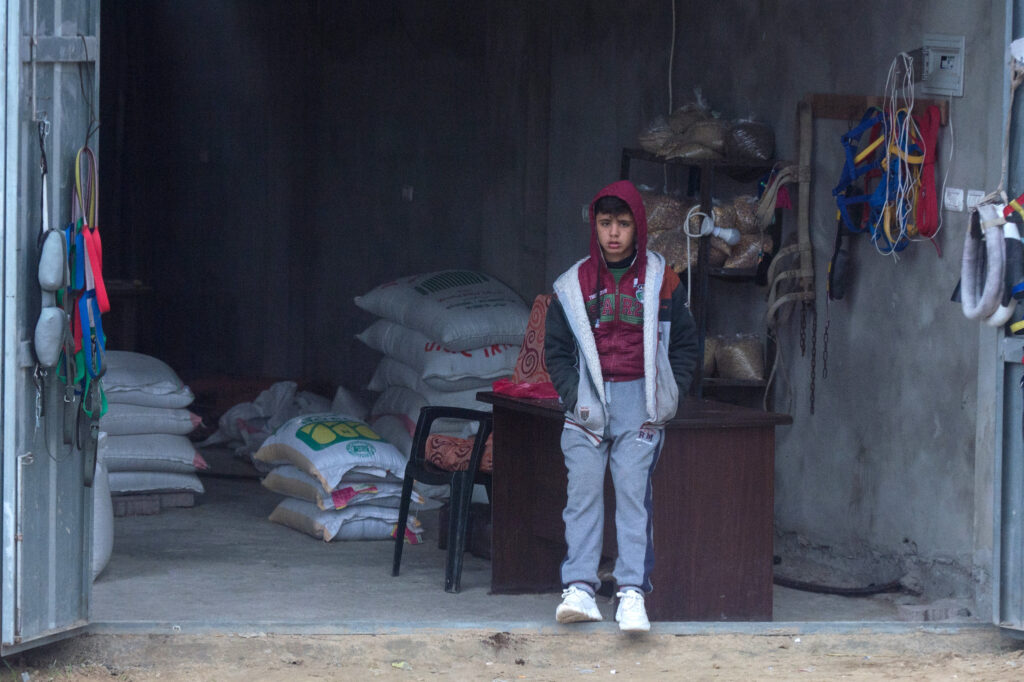
As an example, at the national level, the Dutch national court informed the Israeli authorities on February 12 of a ruling ordering the immediate cessation of exports of components to Israel for F-35 fighter jets from the Netherlands (see BBC article of February 12). On the other hand, last February 29, it was Colombia which announced to suspend all its purchases of military equipment from Israel (see press release of Los Angeles Times).
On a different front, Chile has decided to exclude companies from Israel from the edition of its International Air and Space Fair (FIDAE) to be held this year 2024 (see note from DW): the subject of legal action, Chile’s courts of law immediately rejected arguments about an alleged “right” of these Israeli companies to participate in this type of event (see note from El Ciudadano of March 8). The intemperate statements of Israel’s ambassador to Chile (see note) will probably lead Chile to declare him “non grato” in the coming days.
A group of civil society organizations in Canada is seeking a court ruling to force the Canadian Executive Branch to suspend arms shipments to Israel (see joint communiqué of March 5): Canada, like Germany, is a State Party to the 2013 Arms Trade Convention, whose Article 6(3) legally binds Canadian authorities.

Regarding another international instance based in The Hague, the International Criminal Court (ICC), in another previous note, entitled “Gaza / Israel: regarding the announcement of the joint referral by Mexico and Chile to the International Criminal Court (ICC)” we were able to analyze the scope of the joint referral made by Chile and MéMexico in view of the drama being experienced in Gaza.
Still in relation to the ICC, a legal action by lawyers in Australia against its current authorities, given the observed inaction on their part in relation to what is happening in Gaza, and referred to the ICC in The Hague these days, is of utmost interest (see note from The Conversation of March 5, 2024): the originality of this action evidences the feeling of deep frustration of various sectors in Australia at the absolute passivity of their authorities in the face of Israel’s actions in Gaza and at the statements of support for Israel heard in Australia by political decision-makers. At this link, our esteemed readers will be able to read in more detail the document that Australia sent to the ICC Prosecutor’s office.
Last March 11, The Guardian reported on the recruitment by the ICC Office of the Prosecutor of a British jurist to support the open investigation in Gaza (see note press release).
From regions of the world (and no longer states) that could also take action.
Of course, it is worth noting the recent joint initiative of Spain and Ireland within the European Unionón (EU) in the face of the sanctions regime provided by the various European regulations, when a State that has an association agreement with the EU flagrantly and massively violates human rights (see note from The Guardian of February 15, 2024).
With regard to Latin America, it is worth noting what happened recently at a meeting of the Community of Latin American and Caribbean States (better known as CELAC) in whichneither Argentina, nor Costa Rica, nor Ecuador, nor El Salvador, nor Guatemala, nor Panamá, nor Paraguay, nor Perú, nor Uruguay appear signing a joint declaration vehemently condemning Israel’s senseless actions in Gaza (Note 5).
Still in the American hemisphere, since October 7, 2023, the Organization of American States (OAS) has maintained a profound silence regarding the Palestinian victims in Gaza. Like the silence of some other regional or sub-regional international intergovernmental organizations, it raises very valid questions. Specifically in the case of the OAS, one has to go back to July 2014 (Note 6) to read a communiqué in which the former Secretary General, Chilean José Miguel Insulza, referred to what is happening in Gaza (see press release of July 17, 2014), explaining that:
The Secretary General of the Organization of American States (OAS), José Miguel Insulza, today expressed his full support for the United Nations call, following Egypt’s proposal, for a ceasefire and humanitarian pause in the territory of Gaza, and condemned the attacks by the Israeli army, which have already claimed more than 230 dead. Secretary General Insulza also questioned Hamas’ armed action against Israeli territory and urged both sides to cooperate with the Egyptian initiative.
In reality, the final toll of the military operation in Gaza that began in July 2014 and ended on August 26, 2014 was much higher: after the military offensive in Gaza (70 dead on the Israeli side, including 67 soldiers and 3 Israeli civilians), 2 251 people were recorded dead on the Palestinian side, including 551 children (see link to access the report prepared by a UN commission of inquiry and its summary). We invite our esteemed readers to review the figures and establish a macabre ratio of Palestinian casualties for each life lost by an Israeli civilian so as to better understand the logic again observed since the afternoon/evening of October 7, 2023 by the highest Israeli authorities.
Gaza / Israel: From some overlooked reports and data in some major international media.
With regard to arms exports to Israel, on February 23, 2024, a large group of human rights experts and mechanisms from the United Nations called for an immediate halt to arms exports to Israel. Concerning this issue, see the full text of the official communiqué, whose complete reading is recommended) and in which we read that:
The need for an arms embargo on Israel is heightened by the International Court of Justice’s ruling on 26 January 2024 that there is a plausible risk of genocide in Gaza and the continuing serious harm to civilians since then”, the experts said. The Genocide Convention of 1948 requires States parties to employ all means reasonably available to them to prevent genocide in another state as far as possible. “This necessitates halting arms exports in the present circumstances”, the experts said.
Possibly our esteemed readers will discover the existence of this collective text signed by a large number of United Nations special rapporteurs and independent experts when they read the above-mentioned quote. International mainstream media have hardly disseminated, let alone referenced, the important collective call made from the United Nations headquarters in Europe, demanding a halt to Israel’s military action in Gaza, as has become customary since the afternoon/evening of October 7. Therefore, we should not be surprised.
Hidden Report: The Media Silence on the UN Demand for an Arms Embargo on Israel
Other recent reports totally overlooked in the media regarding Israel’s disrespect for international justice at The Hague are:
- The report by the NGO Human Rights Watch (HRW), detailing Israel’s level of contempt for the ICJ order dated February 26, 2024 and available at this link;
- International Commission of Jurists (ICJ), published on the same date and along the same lines (available at this link);
- a very similar report by the NGO Amnesty International, published on the same date (available at this link) and in which it can be read that:
The humanitarian catastrophe in the occupied Gaza Strip today is the result of Israel’s 16-year blockade and its further intensification, as well as repeated and devastating military operations. Since 2007, Israel has maintained control of Gaza’s airspace, land borders and territorial waters, and strictly restricts the movement of commodities and people in and out of the Strip, fueling a humanitarian disaster. Israel has forced the people of Gaza to live in increasingly dire conditions, which since October 2023 have deteriorated so rapidly and severely that the population as a whole is currently facing a famine that is not due to natural causes. Israel’s blockade is a form of collective punishment and a war crime. Indeed, it is one of Israel’s fundamental means of maintaining its apartheid system against the Palestinian population, which is a crime against humanity.
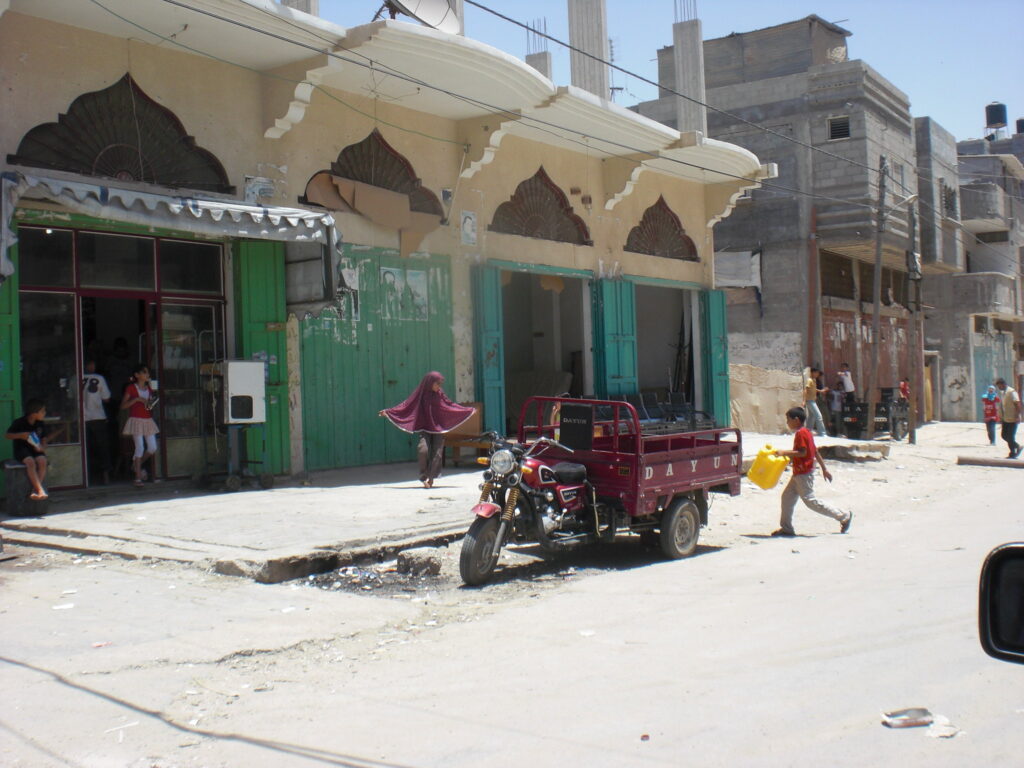
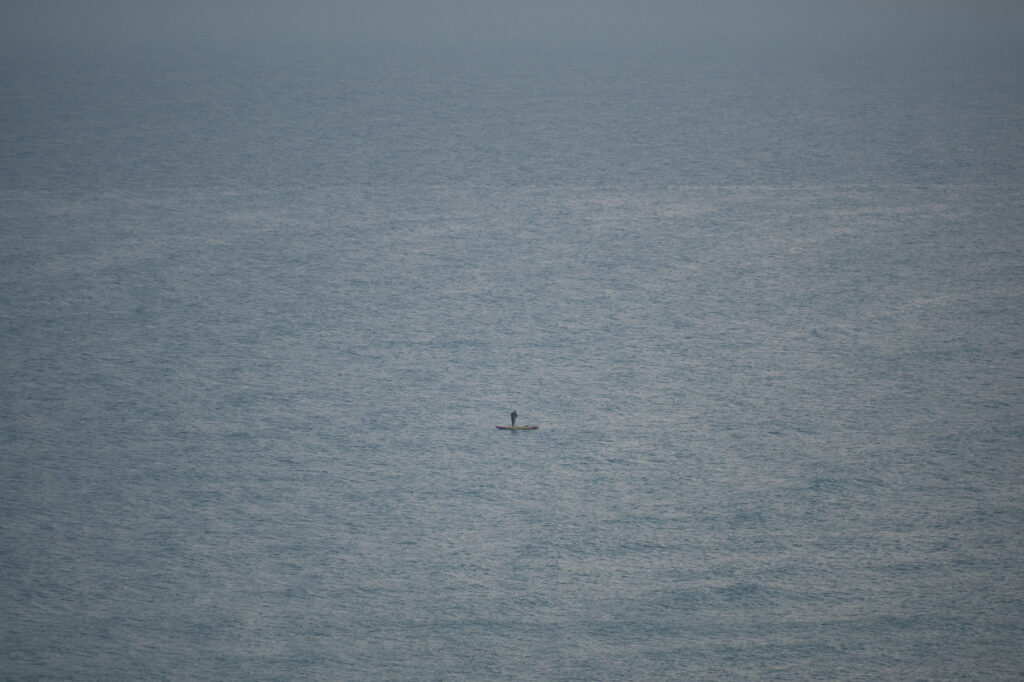
Quite notorious is the lack of dissemination of these reports in the international media, particularly in some of them, which are usually highly dependent on the communiqués issued by HRW, the ICJ or an NGO of the prestige and trajectory of Amnesty International.
An inhuman drama to which Israel is subjecting the civilian population of Gaza.
The Security Council met on February 27 to listen to various experts and United Nations agencies, alerting the members of the Council to the urgent need to order an urgent cessation of hostilities in Gaza without prelude in view of the imminent famine threatening the entire population (see official communiqué of the United Nations).
In one of the interventions, one of the heads of a UN agency indicated (see full text of his intervention before the Security Council) that:
Hunger and the risk of famine are exacerbated by factors that go beyond just the availability of food. Inadequate water, sanitation, and health services creates a cycle of vulnerability, where malnourished people – especially among the tens of thousands of people who are injured – become more susceptible to disease that further depletes the body’s nutritional reserves.
A steep rise in malnutrition among children and pregnant and breastfeeding women in the Gaza strip is a particularly grave concern. And add chronic overcrowding, exposure to the cold and an absence of adequate shelter to this lack of nutrition, and you have created the conditions for massive disease epidemics“.
We had the opportunity to analyze the scope of the US veto of last February 20, to a draft resolution ordering a cease-fire for humanitarian reasons presented by Algeria. This draft resolution received 13 votes in favor, one abstention (United Kingdom) and the vote against (veto) by the United States: see our note entitled “Gaza / Israel: on the indefensible veto of the United States in the Security Council“.
A very active South African diplomacy.
On March 1, 2024, in the midst of a general repudiation by other States of Israel’s actions (see press release from Le Figaro), South African diplomacy was once again one of the first to raise its voice in the face of a new drama that occurred on February 29, during a delivery of humanitarian aid trucks whose beneficiaries were killed by Israeli soldiers.
Related to this, see the official press release from the South African Ministry of Foreign Affairs which reads that:
This attack comes just days after Israel submitted a report to the International Court of Justice (ICJ) and to which South Africa is preparing a response to. This latest atrocity is another breach of international law and in breach of the binding provisional orders of the ICJ. Legal remedies are one route to end institutionalised impunity that Israel has enjoyed for decades, which has emboldened them to act in the manner they have been doing on Thursday, 29 February 2024, and for decades before that.
Latin America, Chile similarly condemned early on what happened in Gaza on February 29 during the delivery of humanitarian aid (see official press release) as did Brazil (see official press release) and Colombia (see official press release).
Silence in Gaza
I suggest to our esteemed readers to find out what their respective State has officially communicated in the face of this truly unjustifiable massacre of civilians by Israel, observed by the whole world on February 29th. And if nothing has been communicated by their respective diplomatic apparatus, to wonder then what could be inhibiting them from expressing themselves on the matter, having access to the same images and testimonies that circulated around the world: a report published in Israel from survivors’ testimonies in Magazine+972, entitled “Survivors of Gaza aid convoy massacre describes ‘indiscriminate’ Israeli fire” (see full text) details what happened that fateful February 29 in Gaza to 115 civilians.
A state like South Africa stands out before the world at the beginning of 2024 for its tireless legal battle before international justice in order to stop the senselessness of the Israeli military machine in Gaza. While South Africa has strengthened its prestige and image as rarely observed, for Israel the discredit is total, with allies who feel increasingly uncomfortable.
A conclusion.
Referring to provisional measures ordered by the ICJ and subsequently ignored by a State, in 2022 we had the occasion to observe the disrespect of the provisional measures ordered to Russia by the ICJ in March 2022, requested by Ukraine (see ordinance of March 16, 2022). It should be recalled that Russia chose in March 2022 not to appear before the judges in The Hague, for reasons unknown (Note 7).
All the sanctions taken against Russia and reinforced by Russia’s failure to comply with the international judge’s ruling as of March 2022, now challenge many decision-makers in Europe, the United States and Canada with regard to Israel’s absolute contempt of the ICJ’s order read on January 26, 2024. These decision-makers show a palpable inconsistency that threatens their future credibility in actions taken in defense of the rules of the international legal order.
Lastly, it is worth noting that Israel has lent itself to waging information warfare, with for example beheaded babies that never left any paper trail (see note from Los Angeles Press) or an alleged Hamas main command center under the Al Shifa hospital in Gaza that was never found: these are just some of the many “irrefutable evidence” that evaporated like air, and on which Israel has tried to build a discourse to justify its actions.
Conclusion
Now, many other states should be able to take on the challenge of international justice and defend the elementary principles of international humanitarian law in the face of Israel’s senseless military action in Gaza, in addition to South Africa. Despite this, many remain mired in a passivity and inaction that is striking: in particular the States of Europe, the Arabian Peninsula and those located in the North of the American continent, from which a greater consistency with their positions in defense of international justice and the rules that prevail in the international legal order would have been expected.
Before the legal actions brought by South Africa, the Israeli state apparatus has not been able to provide convincing answers: the simple fact that the order issued by the ICJ on January 26 was adopted with 16 votes in favor and only one judge against, or in some points of the order, with 15 votes in favor and 2 votes against (see details in paragraph 86 of the ICJ order of January 26) shows the weakness of the Israeli legal defense before the judges in The Hague.
Given the forcefulness of the petition prepared by the South African diplomacy, Israel has had no choice but to launch from various quarters expletives, threats and other angry reactions that are no longer very impressive.
On this point, it is noteworthy that the head of the South African diplomacy made it clear that she receives veiled threats on social networks, pointing bluntly at the Israeli intelligence services. In this press release published on February 8, it can be read that:
I felt that [it would] be better if we had extra security. But what I’m more concerned about is my family, because in some of the social media messages my children are mentioned and so on, but this is par for the course. The Israeli agents, the intelligence services, [this] is how they behave, and they seek to intimidate you, so we must not be intimidated. There is a cause that is under way.
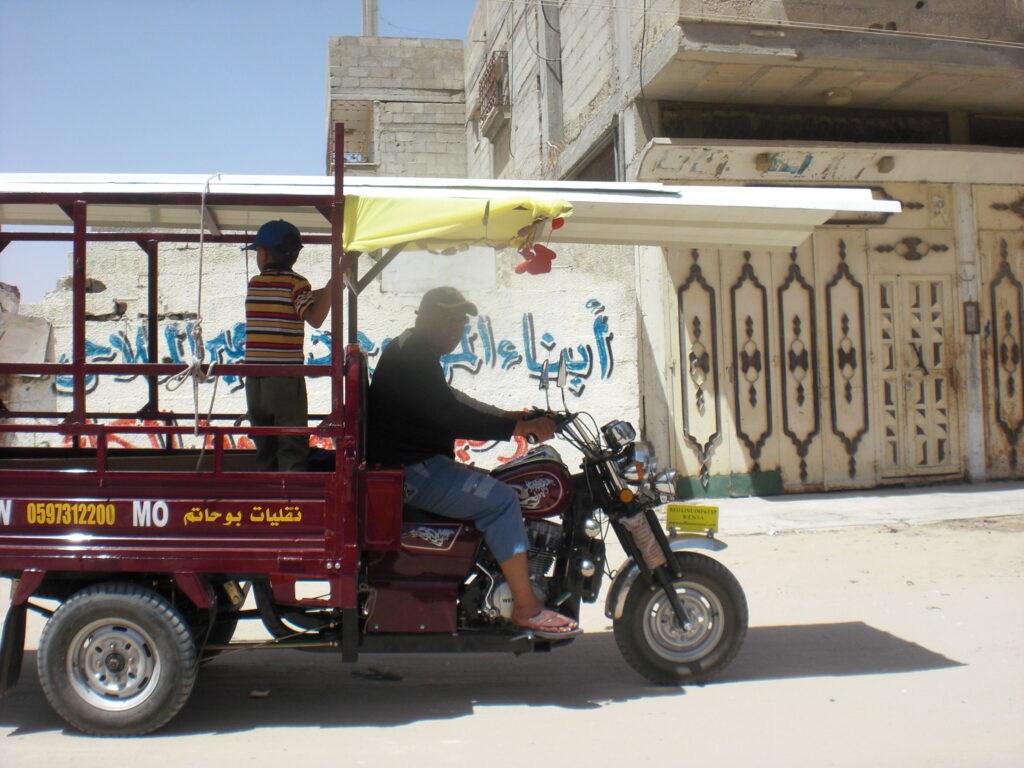
Notes
Note 1: See in this regard our note BOEGLIN N., “Gaza / Israel: apropos of the US maneuvers and the recent UN Security Council resolution S/RES/2720(2023)“, Blog derechointernacionalcr, December 22, 2023 edition. Text available here.
Note 2: See ATT Expert Group, Domestic accountability for international arms transfers: law, policy and practice, Saferworld, 2021, 54 pages. Text available by clicking “donwload” here. See also in relation to the European Union’s regional regulations on the subject MERLIN J.-B., “Les contentieux nationaux relatifs à la vente interétatique d’armes“, Vol. 65 Annuaire Français de Droit International, Année (2019) pp.71-103. Full text of that article available here.
Note 3: In October 2018, Germany suspended its arms exports to Saudi Arabia because of the exactions committed in Yemen by the Saudi-led coalition against Yemeni civilians and the murder of a Saudi journalist at the Saudi Consulate in Turkey (see note by DW). In June 2020, Spain suspended the shipment of 600,000 cartridges to Nicaragua due to disproportionate repression against demonstrators by Nicaraguan police authorities (see note from Mesa Redonda).
Note 4:AL TAMIMI Y., “Implications of the ICJ Order (South Africa v. Israel) for Third States“, EJIL Talk, here.
Note 5: The CELAC Declaration on Israel and Gaza of March 2 entitled “Statement on Israeli actions in Occupied East Jerusalem and the rest of the Occupied Palestinian Territory” is available at this official link from the Itamaraty Palace, headquarters of the Ministry of Foreign Affairs of Brazil.
notes
Note 6: See with respect to the official reactions recorded in Latin America to the dramatic Israeli offensive in Gaza in 2014 an article we published in Uruguay in 2015, BOEGLIN N. , “A year after the start of Operation Protective Edge: brief notes from the perspective of international law“, Estudios del CURI (Centro Uruguayo de Relaciones Internacionales), No. 7/2015, p. 14. Full text available here.
Note 7: Referring to this unusual non-appearance of Russia before the judges of the ICJ, we refer our esteemed readers to some brief reflections of ours: BOEGLIN N. , “The force of law before the right to force (the case of Ukraine and Russia)A propos of the non-appearance of Russia before the International Court of Justice (ICJ)”, Portal of the University of Costa Rica (UCR), March 23, 2022. Text available here.
Nicolas Boeglin, Professor of Public International Law.
Faculty of Law, University of Costa Rica (UCR).
Contact : [email protected].
Navigate articles




